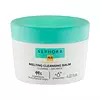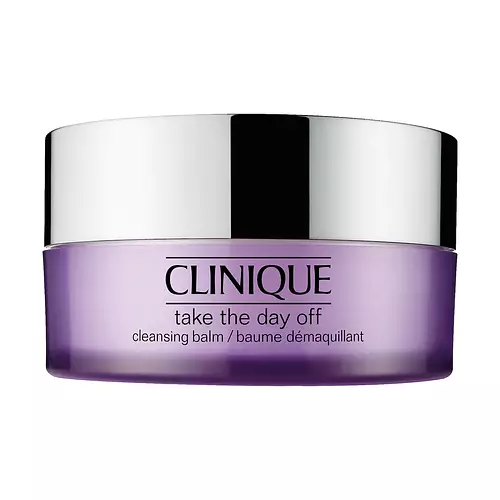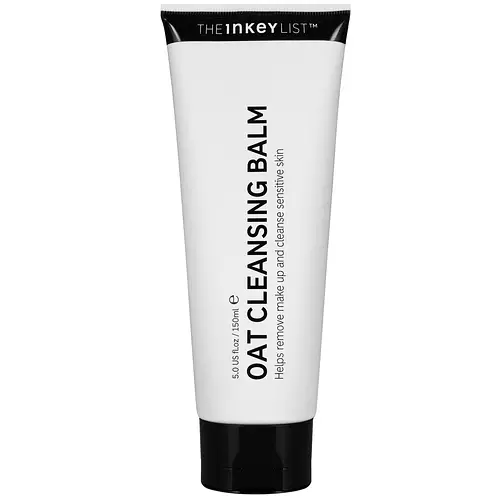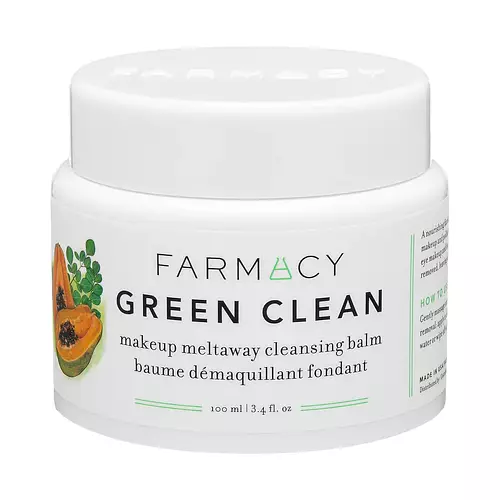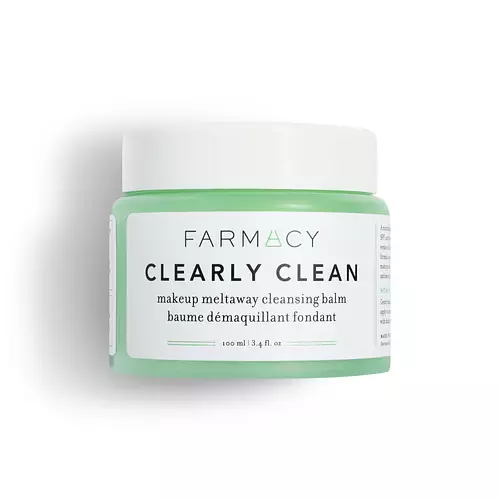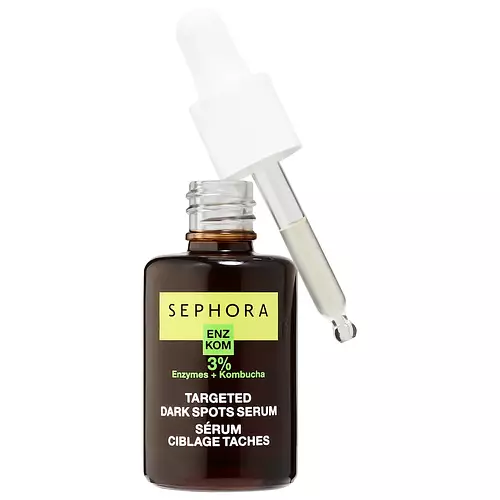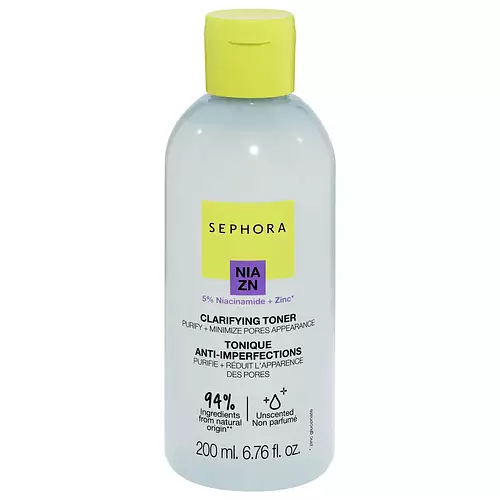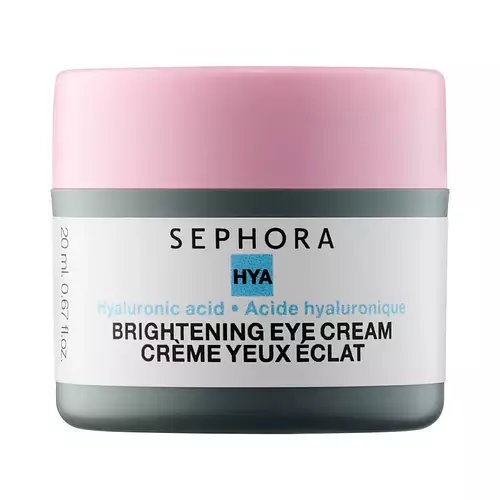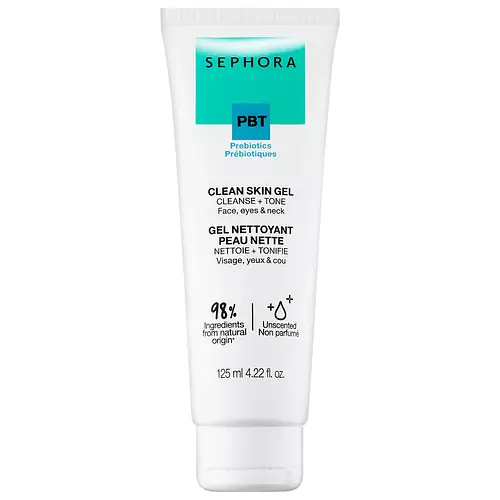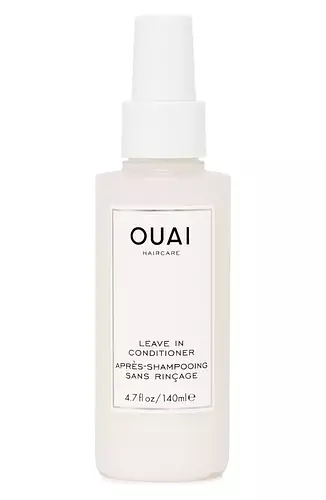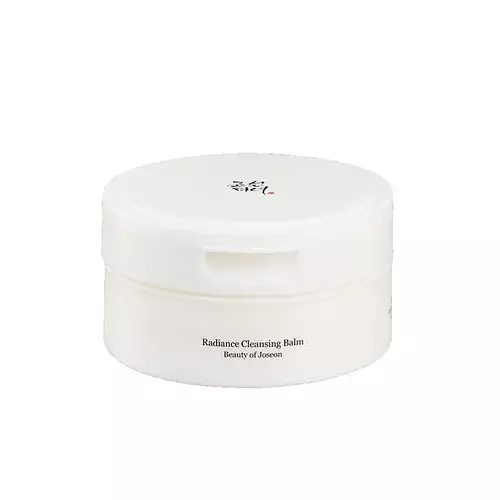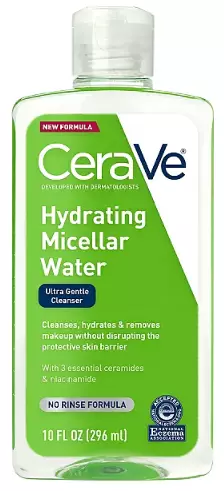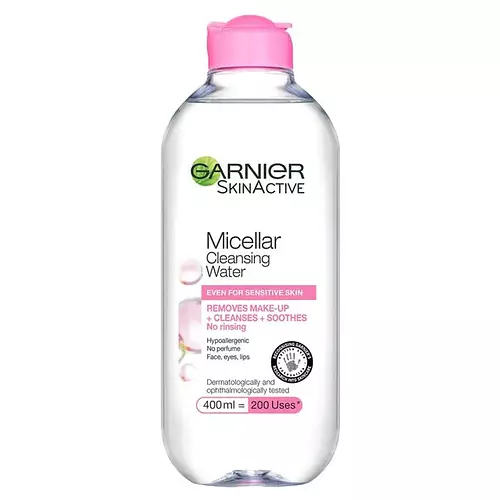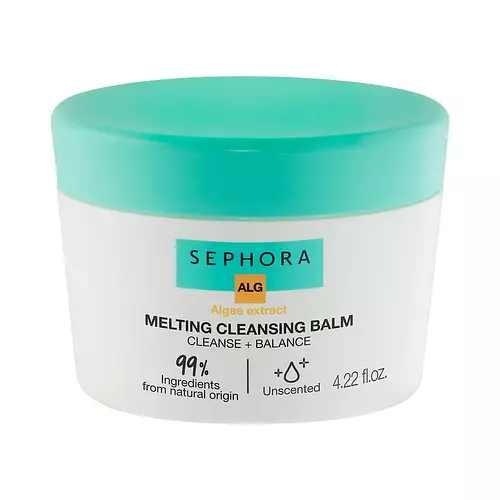
Sephora Collection Melting Cleansing Balm with Algae Extract Ingredients Explained
Overview
What it is
Makeup remover with 23 ingredients that contains Vitamin E
Cool Features
It is reef safe
Suited For
It has ingredients that are good for anti aging, dry skin, brightening skin and scar healing
Free From
It doesn't contain any harsh alcohols, common allergens, fragrances, parabens, silicones or sulfates
Fun facts
Sephora Collection is from France. This product is used in 21 routines created by our community.
We independently verify ingredients and our claims are backed by peer-reviewed research. Does this product need an update? Let us know.
Makeup remover with 23 ingredients that contains Vitamin E
Quick info
You should know
Notable Ingredients
This product contains 1 ingredient that may have this attribute:
Benefits
This product contains 3 ingredients that may have this attribute:
This product contains 1 ingredient that may have this attribute:
This product contains 1 ingredient that may have this attribute:
This product contains 2 ingredients that may have this attribute:
Concerns
This product contains 1 ingredient that may have this attribute:
This product contains 1 ingredient that may have this attribute:
This product contains 1 ingredient that may have this attribute:
This product contains 1 ingredient that may have this attribute:
This product contains 1 ingredient that may have this attribute:
This product contains 1 ingredient that may have this attribute:
Ingredients 23
Helianthus Annuus Seed Oil is the oil derived from the seeds of a Sunflower. Sunflower seed oil is non-fragrant. It is an emollient, meaning it helps to soften the skin.
Glycerin is already naturally found in your skin. It helps moisturize and protect your skin.
Hydrogenated Castor Oil is created by adding hydrogen to castor oil. This helps stabilize the castor oil and raises the melting point. At room temperature, hydrogenated castor oil is solid.
Tribehenin comes from glycerin and behenic acid.
Water. It's the most common cosmetic ingredient of all. You'll usually see it at the top of ingredient lists, meaning that it makes up the largest part of the product.
Coco-Caprylate/Caprate is created from fatty coconut alcohol, caprylic acid, and capric acid.
A type of fatty alcohol. Fatty Alcohols are most often used as an emollient or to thicken a product. They are usually derived from natural fats and oils and therefore do not have the same drying or irritating effect as traditional alcohols.
Polyglyceryl-4 Caprate comes from Capric Acid and Polyglycerin-4. It is an emulsifier.
Caprylyl Glycol is a humectant and emollient, meaning it attracts and preserves moisture.
Cocamidopropyl Betaine is a fatty acid created by mixing similar compounds in coconut oil and dimethylaminopropylamine. Dimethylaminopropylamine is a diamine, an amine with two amino groups.
Tocopherol (also known as Vitamin E) is a common antioxidant used to help protect the skin from free-radicals and strengthen the skin barrier. It's also fat soluble - this means our skin is great at absorbing it.
Chances are, you eat sodium chloride every day. Sodium Chloride is also known as table salt.
Sodium Benzoate is a preservative. It's used in both cosmetic and food products to inhibit the growth of mold and bacteria. It is typically produced synthetically.
Phenethyl Alcohol is a colorless and aromatic alohol. It is naturally occuring in essential oils.
Laminaria Digitata Extract comes from the dark brown seaweed, Laminaria Digitata. It is a potent antioxidant, which also provides soothing and hydrating benefits.
Chlorella Vulgaris Extract comes from the microalga, Chlorella vulgaris. It is hydrating and contains antioxidants. Studies also show Chlorella Vulgaris may help in rebuilding collagen and elastin.
Citric Acid is an AHA derived from citrus fruits (think oranges, lemons, and limes!).
Ci 42090 is a synthetic dye created from petroleum. It is used to give a bright blue color to cosmetics, medicine, and food.
Helianthus Annuus Seed Oil, Glycerin, Hydrogenated Castor Oil, Polyglyceryl-3 Caprate, Tribehenin, Water, Coco-Caprylate/Caprate, Behenyl Alcohol, Polyglyceryl-4 Caprate, Caprylyl Glycol, Cocamidopropyl Betaine, Polyglyceryl-3 Stearate, Maris Aqua, Tocopherol, Sodium Chloride, Hydrolyzed Algin, Sodium Benzoate, Phenethyl Alcohol, Laminaria Digitata Extract, Chlorella Vulgaris Extract, Saccharide Isomerate, Citric Acid, CI 42090
Ingredient Ratings
Based on the number of likes and dislikes each ingredient has received.
Ingredients Explained
Helianthus Annuus Seed Oil is the oil derived from the seeds of a Sunflower. Sunflower seed oil is non-fragrant. It is an emollient, meaning it helps to soften the skin.
Sunflower seed oil contains many fatty acids. The fatty acids found in sunflower seeds include (from highest amount to least): linoleic acid, myristic acid, palmitic acid, stearic acid, arachidic acid, oleic acid, and linolenic acid.
These fatty acids help the skin create ceramides. Ceramides play a role in repairing the skin barrier.
Helianthus Annuus Seed Oil helps moisturize the skin. This in turn helps the skin look more rejuvenated and smoother.
Sunflowers are rich in vitamin E.
Historians believe Indigenous cultures of North America domesticated sunflowers before corn. Thus they relied on sunflower oil for a variety of uses. One such use is moisturizing skin and hair.
Sunflower seed oil may not be fungal acne safe. We recommend speaking with a professional if you have any concerns.
Learn more about Helianthus Annuus Seed OilGlycerin is already naturally found in your skin. It helps moisturize and protect your skin.
A study from 2016 found glycerin to be more effective as a humectant than AHAs and hyaluronic acid.
As a humectant, it helps the skin stay hydrated by pulling moisture to your skin. The low molecular weight of glycerin allows it to pull moisture into the deeper layers of your skin.
Hydrated skin improves your skin barrier; Your skin barrier helps protect against irritants and bacteria.
Glycerin has also been found to have antimicrobial and antiviral properties. Due to these properties, glycerin is often used in wound and burn treatments.
In cosmetics, glycerin is usually derived from plants such as soybean or palm. However, it can also be sourced from animals, such as tallow or animal fat.
This ingredient is organic, colorless, odorless, and non-toxic.
Glycerin is the name for this ingredient in American English. British English uses Glycerol/Glycerine.
Learn more about GlycerinHydrogenated Castor Oil is created by adding hydrogen to castor oil. This helps stabilize the castor oil and raises the melting point. At room temperature, hydrogenated castor oil is solid.
Castor Oil helps moisturize the skin. It is rich in a fatty acid called ricinoleic acid. This fatty acid helps prevent moisture loss on the skin. This helps keep your skin soft and hydrated. Ricinoleic acid also has anti-inflammatory and pain reducing properties.
As a wax-like substance, Hydrogenated Castor Oil acts as an emollient. Emollients help keep your skin stay soft and smooth by creating a barrier. This barrier helps trap moisture.
Hydrogenated Castor Oil may not be fungal-acne safe. We recommend speaking with a professional.
Learn more about Hydrogenated Castor OilWe don't have a description for Polyglyceryl-3 Caprate.
Tribehenin comes from glycerin and behenic acid.
It is used as an emollient, or moisturizer. Emollients form a thin barrier on skin to prevent moisture from escaping.
This ingredient may not be Malassezia folliculitis, or fungal-acne safe.
Learn more about TribeheninWater. It's the most common cosmetic ingredient of all. You'll usually see it at the top of ingredient lists, meaning that it makes up the largest part of the product.
So why is it so popular? Water most often acts as a solvent - this means that it helps dissolve other ingredients into the formulation.
You'll also recognize water as that liquid we all need to stay alive. Talk about multi-purpose! If you see this, drink a glass of water. Stay hydrated!
Learn more about WaterCoco-Caprylate/Caprate is created from fatty coconut alcohol, caprylic acid, and capric acid.
It is a lightweight emollient. Emollients create a thin barrier on the skin to trap moisture in. This helps keep your skin hydrated and soft.
Once applied, Coco-Caprylate/Caprate is absorbed quickly and leaves a silky feel.
Coco-Caprylate/Caprate may not be fungal acne safe.
Learn more about Coco-Caprylate/CaprateA type of fatty alcohol. Fatty Alcohols are most often used as an emollient or to thicken a product. They are usually derived from natural fats and oils and therefore do not have the same drying or irritating effect as traditional alcohols.
Emollients help keep your skin soft and hydrated by creating a film that traps moisture in.
Behenyl Alcohol is usually derived from the fats in vegetable oils.
In 2000, Behenyl Alcohol was approved by the US as medicine to reduce the duration of cold sores.
Learn more about Behenyl AlcoholPolyglyceryl-4 Caprate comes from Capric Acid and Polyglycerin-4. It is an emulsifier.
Emulsifiers help stabilize a product. They do this by preventing ingredients from separating, such as oils and water which do not mix naturally.
Caprylyl Glycol is a humectant and emollient, meaning it attracts and preserves moisture.
It is a common ingredient in many products, especially those designed to hydrate skin. The primary benefits are retaining moisture, skin softening, and promoting a healthy skin barrier.
Though Caprylyl Glycol is an alcohol derived from fatty acids, it is not the kind that can dry out skin.
This ingredient is also used as a preservative to extend the life of products. It has slight antimicrobial properties.
Learn more about Caprylyl GlycolCocamidopropyl Betaine is a fatty acid created by mixing similar compounds in coconut oil and dimethylaminopropylamine. Dimethylaminopropylamine is a diamine, an amine with two amino groups.
Cocamidopropyl Betaine is a surfactant and cleanser. It helps gather the dirt, pollutants, and other impurities in your skin to be washed away. It also helps thicken a product and make the texture more creamy.
Being created from coconut oil means Cocamidopropyl Betaine is hydrating for the skin.
While Cocamidopropyl Betaine was believed to be an allergen, a study from 2012 disproved this. It found two compounds in unpure Cocamidopropyl Betaine to be the irritants: aminoamide and 3-dimethylaminopropylamine. High-grade and pure Cocamidopropyl Betaine did not induce allergic reactions during this study.
Learn more about Cocamidopropyl BetainePolyglyceryl-3 Stearate isn't fungal acne safe.
We don't have a description for Maris Aqua.
Tocopherol (also known as Vitamin E) is a common antioxidant used to help protect the skin from free-radicals and strengthen the skin barrier. It's also fat soluble - this means our skin is great at absorbing it.
Vitamin E also helps keep your natural skin lipids healthy. Your lipid skin barrier naturally consists of lipids, ceramides, and fatty acids. Vitamin E offers extra protection for your skin’s lipid barrier, keeping your skin healthy and nourished.
Another benefit is a bit of UV protection. Vitamin E helps reduce the damage caused by UVB rays. (It should not replace your sunscreen). Combining it with Vitamin C can decrease sunburned cells and hyperpigmentation after UV exposure.
You might have noticed Vitamin E + C often paired together. This is because it is great at stabilizing Vitamin C. Using the two together helps increase the effectiveness of both ingredients.
There are often claims that Vitamin E can reduce/prevent scarring, but these claims haven't been confirmed by scientific research.
Learn more about TocopherolChances are, you eat sodium chloride every day. Sodium Chloride is also known as table salt.
This ingredient has many purposes in skincare: thickener, emulsifier, and exfoliator.
You'll most likely find this ingredient in cleansers where it is used to create a gel-like texture. As an emulsifier, it also prevents ingredients from separating.
There is much debate on whether this ingredient is comedogenic. The short answer - comedogenic ratings don't tell the whole story. Learn more about comegodenic ratings here.
The concensus about this ingredient causing acne seems to be divided. Research is needed to understand if this ingredient does cause acne.
Scrubs may use salt as the primary exfoliating ingredient.
Learn more about Sodium ChlorideWe don't have a description for Hydrolyzed Algin.
Sodium Benzoate is a preservative. It's used in both cosmetic and food products to inhibit the growth of mold and bacteria. It is typically produced synthetically.
Both the US FDA and EU Health Committee have approved the use of sodium benzoate. In the US, levels of 0.1% (of the total product) are allowed.
Sodium benzoate works as a preservative by inhibiting the growth of bacteria inside of cells. It prevents the cell from fermenting a type of sugar using an enzyme called phosphofructokinase.
Sodium Benzoate is the salt of benzoic acid. Foods containing sodium benzoate include soda, salad dressings, condiments, fruit juices, wines, and snack foods.
Studies for using ascorbic acid and sodium benzoate in cosmetics are lacking, especially in skincare routines with multiple steps.
We always recommend speaking with a professional, such as a dermatologist, if you have any concerns.
Learn more about Sodium BenzoatePhenethyl Alcohol is a colorless and aromatic alohol. It is naturally occuring in essential oils.
The scent of this ingredient is floral and often compared to rose.
Like other alcohols, this ingredient helps prevent the growth of bacteria. However, its main purpose is to impact a fragrance.
Learn more about Phenethyl AlcoholLaminaria Digitata Extract comes from the dark brown seaweed, Laminaria Digitata. It is a potent antioxidant, which also provides soothing and hydrating benefits.
Many studies show the antioxidant components of Laminaria Digitata to help with anti-inflammation.
Laminaria Digitata contains amino acids, proteins, sugars, and vitamins. Small amounts of minerals such as phosphorous, iron, potassium, and copper are also found the seaweed. These components help hydrate and nourish your skin's natural barrier. Having a healthy skin barrier leads to more youthful looking skin and may help reduce the signs of aging.
Laminaria Digitata is found in the northern Atlantic Ocean.
Learn more about Laminaria Digitata ExtractChlorella Vulgaris Extract comes from the microalga, Chlorella vulgaris. It is hydrating and contains antioxidants. Studies also show Chlorella Vulgaris may help in rebuilding collagen and elastin.
Antioxidants help with the signs of aging by neutralizing free-radical molecules. Free-radical molecules, if left unchecked, may damage skin cells and DNA. On top of that, Chlorella Vulgaris helps condition and hydrate the skin.
Chlorella Vulgaris is made up of lipids, carbohydrates, and chlorophyll.
This ingredient is commonly used as food additive in Japan.
Learn more about Chlorella Vulgaris ExtractSaccharide Isomerate comes from sugars found in corn. It is a skin hydrator.
The structure of this ingredient can be altered to be more similar to the carbohydrates found in our skin. This ability to mimic our skin gives it hydrating properties.
Specifically, saccharide Isomerate is a humectant. Humectants draw moisture from the air to our skin.
Research shows Saccharide Isomerate to be an effective moisturizer.
Learn more about Saccharide IsomerateCitric Acid is an AHA derived from citrus fruits (think oranges, lemons, and limes!).
If you spot Citric Acid near the end of an ingredient list, it's likely there as a pH adjuster rather than an active ingredient.
As an AHA, Citric Acid removes the top layer of skin cells from the newer layer of skin underneath. This helps skin to remove dark spots and look more even.
Read more about some other popular AHA's here:
Learn more about Citric AcidCi 42090 is a synthetic dye created from petroleum. It is used to give a bright blue color to cosmetics, medicine, and food.
When to use
How this product is used by our community
Directions
-Apply a small amount with fingertips to the face and neck.
-Massage into dry skin, specifically on areas where makeup needs to be removed.
-Rinse well with warm water.
-Apply a small amount with fingertips to the face and neck.
-Massage into dry skin, specifically on areas where makeup needs to be removed.
-Rinse well with warm water.
Reviews
AshN.
(Tried Apr 2023) I will say for a cleansing balm it works very well and the amount of product you receive for the price is also a great, so it...
(Tried Apr 2023) I will say for a cleansing balm it works very well and the amount of product you receive for the price is also a great, so it makes for a great budget buy. My main complaints are due to the strong scent and how it can be a bit irritating if it sits around the eye area for too long.
Compared With
Here are some products that it's often compared with
More Sephora Collection Products
See all Sephora Collection productsMore Makeup Removers
See all makeup removersWe're dedicated to providing you with the most up-to-date and science-backed ingredient info out there.
The data we've presented on this page has been verified by a member of the SkinSort Team.
Read more about us
